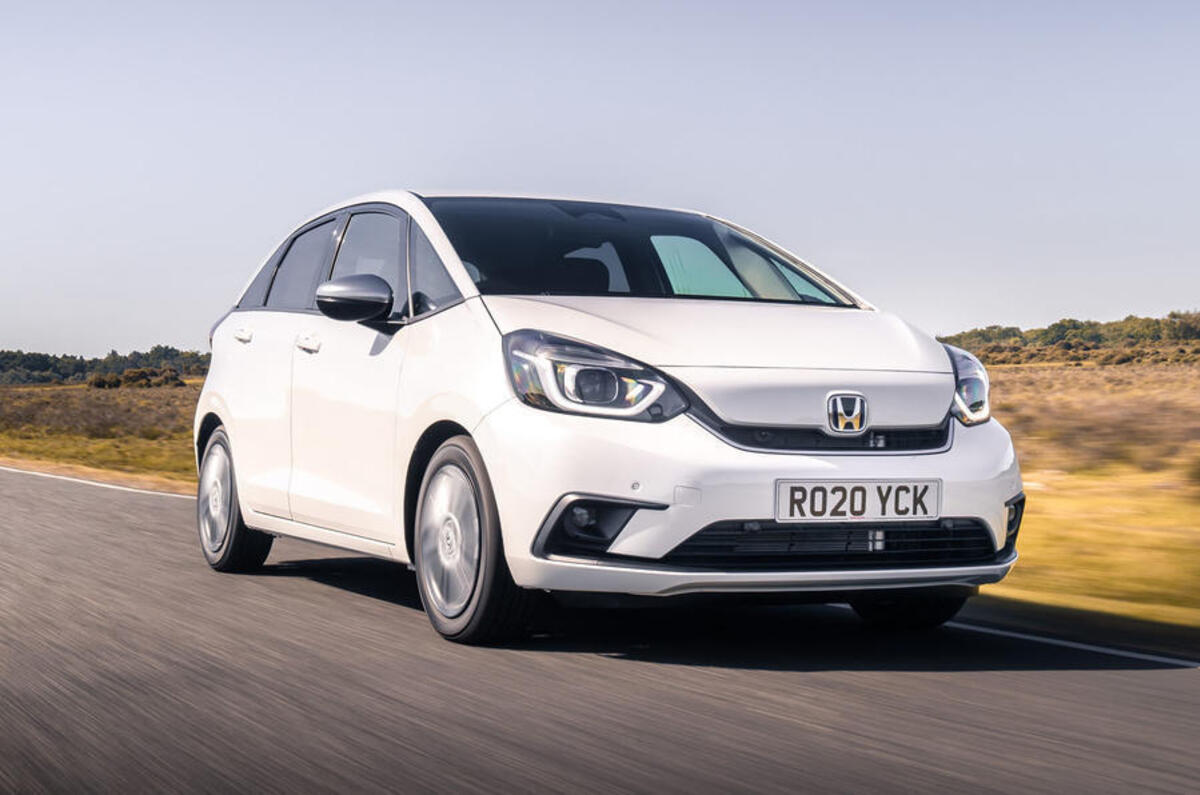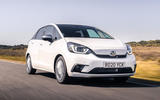Honda is aiming to phase out pure internal combustion engines from its European line-up by the end of 2022, the firm's senior vice president, Ian Howells, has confirmed.
“It [Honda’s line-up] will be a combination of full electric and hybrid," he said. "Obviously, if the legislation starts to move as we approach 2035, or transitions away from hybrid as well, then we’ll move our technology away from that.”
Howells was keen to stress that Honda believes in a multi-pathway approach to reducing its carbon footprint and the recent UK government announcement around a 2030 ban hasn’t changed that.
He feels there is a role for various technologies. “There’s a role to play for e-fuels, for biomass, for hydrogen, to some degree for conventional fuels, and also batteries,” he said.
Although Honda supports electrification, the cost of electric vehicles is one reason that Howells doesn’t see them as an immediate solution to reducing the carbon output: “They’re a third to 50% more expensive than a conventional or hybrid vehicle.” As a result, Honda feels that hybrid technology will offer an effective way of transitioning to full electric.
Howells is aware of the limitations of hybrids: “They don’t take us the full way and that’s why we do see this as a transitioning or bridging type of technology to get us to the point at which the technology behind the batteries and the infrastructure are both in place to move forward to offering mass personal mobility with a new type of energy carrier.”
READ MORE
Official: government to ban new petrol and diesel car sales in 2030
Honda calls on government to support hybrids, reduce EV focus
Honda to electrify European line-up by 2022, not 2025








Join the debate
Add your comment
Now they're designing it 'in' to tick a box.
Hybrids make little sense. No matter how depleted your batteries are, the engine will always be working that little bit harder to carry the extra weight around. It never goes away.
And how come EVs are more expensive than hybrids? That makes no sense either. You don't get an ICE and it's fueling system with an EV, just a few more batteries and in some cases, an extra motor.
Let's be honest here, they are a rip off.
LEAF 27k, auto 1.5 Civic 26k similar performance and spec but just 1k price difference. No wonder honda sales are plummeting in europe with foreslight like that. Hows the hydrogen clarity selling mr honda
But you could compare the leaf to a quashqai, golf, focus etc the civic isn't uniquely priced.
But yes Honda whilst starting early on hybrids seemed to have dropped the ball somewhat and are now behind and should really have had EVs a lot earlier, but that can be said of a fair few manufacturers who are only now suddenly catching up to nissan and Renault. They were later than their competitors with low co2 diesels for fleet users as well, I just don't think they design their cars with the UK and EU in mind.